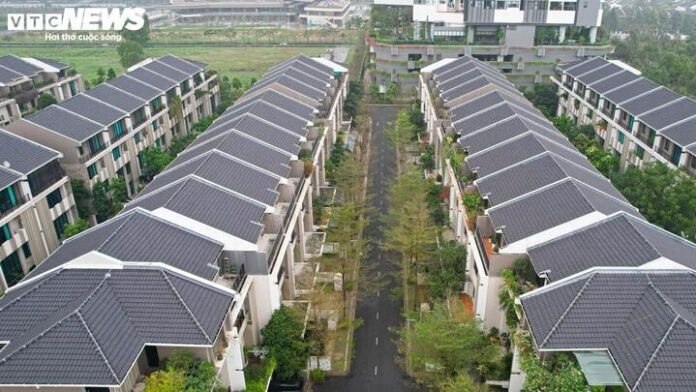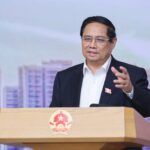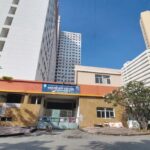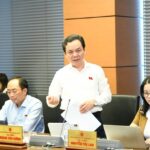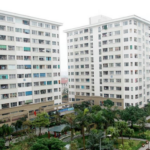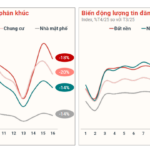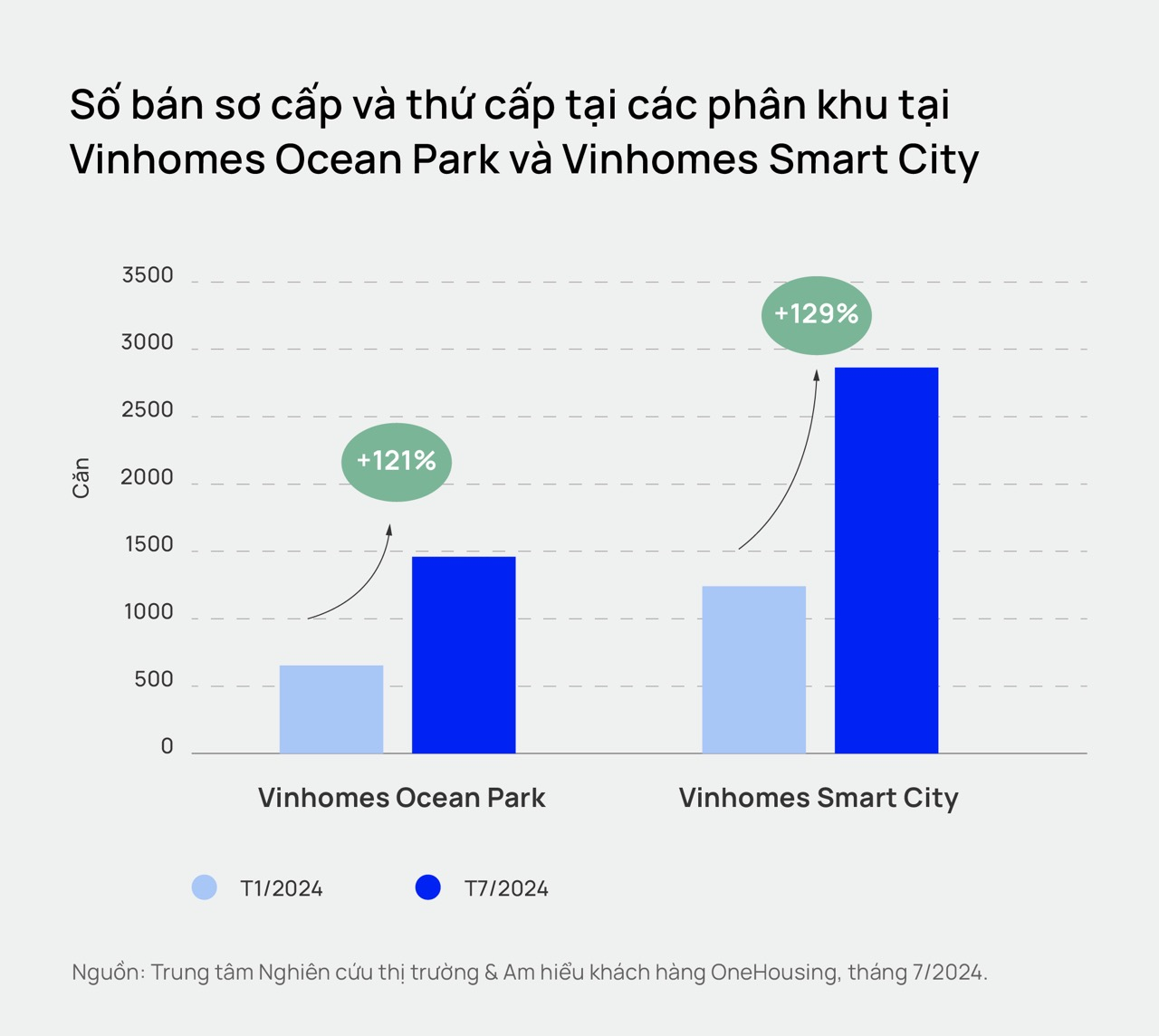Curbing Property Speculation
In a recent meeting with ministries, associations, banks, and businesses regarding the real estate market situation, Prime Minister Pham Minh Chinh instructed the Ministry of Finance to urgently research and implement a policy to tax unused land and real estate, as well as the difference between the land price and selling price.
Expressing his views on this matter, Mr. Nguyen Van Dinh, Chairman of the Vietnam Real Estate Brokers Association (VARS), considered it a necessary step. According to him, for many years now, the concepts of “abandoned houses,” “vacant villas,” and “deserted urban areas” have become commonplace.
Even in large cities, supposedly crowded and space-constrained, this situation exists, creating an ironic contrast where land and properties lie unused while many citizens struggle to afford a piece of land or a home.
This situation not only wastes land resources but also creates social inequality, as the majority of housing supply continues to be out of reach for financially constrained individuals, with many being bought for speculative purposes.
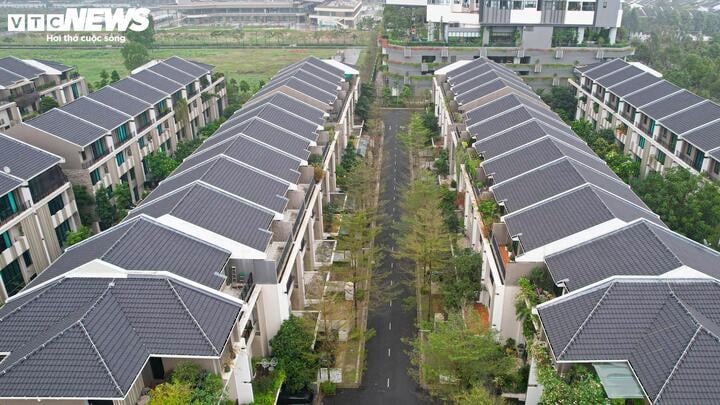
Experts argue that it’s time to tax vacant land and properties. (Illustrative image: Minh Duc)
“They own a few, or even dozens of real estate properties, leaving them vacant, hoarding land, and driving up housing prices, making it increasingly difficult for people to afford homes,” he said.
Mr. Dinh also pointed out that speculation and investment in Vietnam are still not clearly distinguished. Buying real estate for personal use, renting, or transferring is legal and inherent in the market mechanism, with individuals taking responsibility for profits and losses. However, uncontrolled buying and selling activities are the main cause of land fever.
“Speculators hoard properties when there is a shortage, leave them vacant to drive up prices, or create artificial scarcity to make profits. This practice is prevalent, occurring from urban to rural areas,” Mr. Dinh described the situation.
According to him, taxing real estate aimed at accumulators and speculators instead of those buying for living or production purposes, is a way to increase state budget revenues, regulate the real estate market, and follow global trends.
Sharing the same viewpoint, Dr. Nguyen Tri Hieu also believes that this is an appropriate time for the National Assembly and the Government to consider imposing a tax on the value of real estate (in addition to the registration fee and real estate transaction tax). The application of this tax will supplement the country’s budget and reduce speculation.
However, to impose a tax on real estate value, Mr. Hieu said that the value of the real estate must be determined, including land costs and the value of assets on the land.
Agreeing with the policy of taxing vacant real estate, lawyer Truong Anh Tu, Chairman of TAT Law Firm, cited the example of Singapore, where owners of a second or subsequent property are subject to an additional property tax of up to 20-30% of the transaction value, especially if the owner is a foreigner or the property is not used for residential purposes.
Similarly, in France, a vacant home tax is applied progressively based on the length of vacancy, starting at 12.5% of the estimated rental value and increasing to 25% from the second year onwards.
“Vietnam can definitely learn from these examples, but we should not apply them mechanically. We must consider the context of our market and management capabilities,” Mr. Tu stated.
How to impose the tax reasonably?
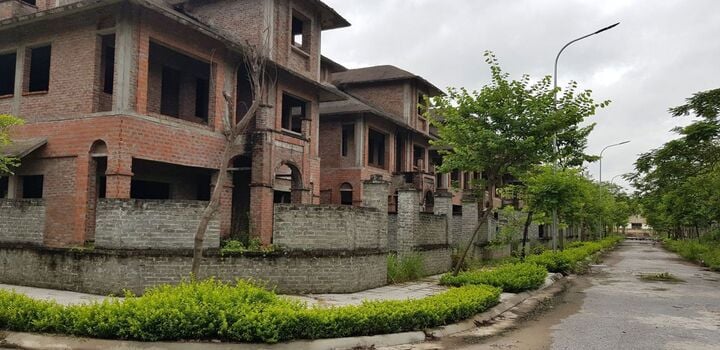
The longer properties remain vacant, the higher the tax rate. (Illustrative image)
According to experts, taxing vacant land and properties is necessary, but several factors need to be carefully considered.
Prof. Dr. Dang Hung Vo, former Deputy Minister of Natural Resources and Environment, analyzed that while many want to emulate Singapore’s taxation method, where the purchase of a second home is taxed higher, Vietnam’s situation is different. In cases where the first home is of significantly higher value than the second, it would be unreasonable to tax only the latter.
Some countries impose a tax of 1-1.5% of the value on all cases of home and land ownership. However, with Vietnam’s relatively low-income levels, such a tax rate would be unbearable for many citizens.
“We must research a tax policy suitable for Vietnam, perhaps based on property value or area, to ensure that we curb real estate speculation while also ensuring social welfare,” said Mr. Vo.
Regarding the infrastructure for tax collection, Mr. Vo also noted that management infrastructure is still weak, and a comprehensive land database has yet to be established. Currently, only Dong Nai province has a relatively complete land database, while other localities have only managed to cover specific areas.
“What if an individual owns real estate in multiple provinces? How do we calculate the tax without a nationwide real estate database?” Mr. Vo raised the question.
He also mentioned the transformation of the tax on the transfer of the right to own houses and land into a tax on income from the transfer, which is challenging to implement due to the difficulty in determining income, so the 2% rate remains in place.
Additionally, certain mindsets need to be addressed before introducing this tax policy, such as whether to publicly disclose the identities of all real estate owners nationwide or only to the tax authorities. If disclosed only to the tax authorities, how can the public ensure transparency and accountability?
“Apart from determining a tax policy that aligns with socio-economic conditions and people’s income levels, we must also consider the sources of income and assets used to acquire and construct these properties. This foundation needs to be established to effectively implement the real estate tax,” Mr. Vo emphasized.
Mr. Nguyen Van Dinh, Chairman of VARS, suggested that the tax rate could be progressively increased based on the duration of vacancy. For example, in South Korea, land left vacant or under land improvement for more than two years is taxed at 5%, increasing to 8% after five years, 9% after seven years, and 10% after ten years.
Such a policy would discourage and reduce incentives for speculation, curb rising housing prices, and make speculative real estate ownership riskier due to various opportunity costs, including interest expenses. Buying and selling real estate for profit or creating artificial demand would become meaningless.
At the same time, it would encourage owners of vacant properties to rent or sell them, thereby increasing access to housing for those with genuine needs. In cases where owners continue to speculate despite the tax, the state would benefit from the tax revenue, which could be used for public investments in schools, hospitals, infrastructure, and more.
Additionally, Mr. Dinh suggested that developers who fail to implement projects according to the approved schedule should also be strictly handled.
“Ensuring Equal Access: The Prime Minister’s Meeting with Vingroup and Sungroup Leaders”
The Prime Minister has taken a firm stance against any manipulative practices in the real estate market. He has directed authorities to take stringent action against those who engage in price manipulation, speculation, market rigging, and profiteering, ensuring that such malicious activities are eradicated from the industry.
Unlocking $6 Quadrillion: The Key to Unlocking Vietnam’s Real Estate Conundrum
National Assembly Deputy Hoang Van Cuong has proposed a bold idea to unlock nearly VND 6 quadrillion from over 2,200 stagnant real estate projects. By addressing the challenges faced by these ventures, Cuong believes that Vietnam can harness a significant source of capital to fuel its ambitious growth target of 8% in 2025. This innovative approach has the potential to revolutionize the country’s economic landscape, offering a new avenue to fund infrastructure development and stimulate economic growth. The question now is: will this proposal gain traction and shape Vietnam’s path toward a brighter economic future?
Unlocking Housing Opportunities: Expanding Criteria for Social Housing Beneficiaries
The Government Office issued Notification No. 256/TB-VPCP on May 23, 2025, conveying the conclusions of Deputy Prime Minister Tran Hong Ha at a meeting on the real estate market situation.

